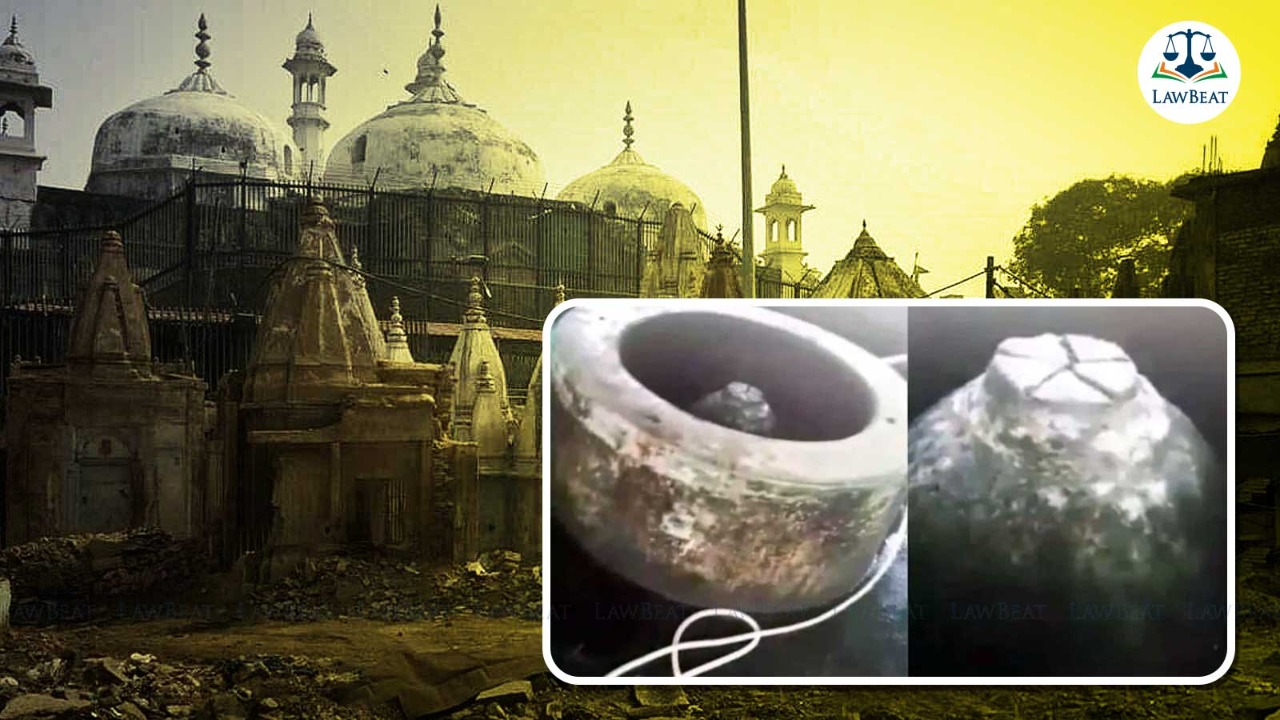'Now visible' Shivlinga is part of suit property: Hindu side argues in Gyanvapi case before Varanasi Court

On May 16, during a court-ordered survey, a Shivlinga like structure was found in the Wazookhana of the mosque- a spot for Namazis to perform ablutions before prayers.
After the hearing in the Gyanvapi case before the local court at Varanasi today, the counsel for the Hindu side informed that it is their contention that the Shivlinga, found at the Gynvapi complex during the court-ordered survey is part of the suit/case property.
Today, District Judge AK Vishvesha asked the counsel for the Hindu side to clarify 1) whether the concerned structure found inside the Gyanvapi complex is part of the instant suit property and 2) whether the court can issue a commission for its scientific investigation.
To this, the counsel for the Hindu side Advocate Vishnu Shankar Jain argued: 1) The scientific investigation can be allowed under Order 26 Rule 10A of CPC and 2) Since the deity has become visible after the court-ordered survey, it is now part of the suit property.
He submitted that the original pleadings in the plea filed by the Hindu women worshippers state that the suit relates to visible or invisible deities and since the alleged Shivlinga is now visible, the same would definitely be a part of the suit property.
The court while stating that it will pronounce the order in the plea moved by the Hindu side seeking scientific investigation (may be carbon dating as well) of the Shivlinga like structure after hearing the arguments of the Anjuman Islamia Masjid committee, adjourned the matter till October 11, 2022.
On September 22, in the instant application, the court had issued notice to the Muslim side directing it to file their objections to the plea, if any. The matter was again heard on September 29 and the order was expected to come today.
On May 16, 2022, during a survey by the court-appointed commission, a Shivlinga like structure was found inside the Wazookhana of the mosque complex. The Hindu side alleged that this was a significant evidence of the claim that the mosque was built by razing the old temple of lord Vishweshwar of Kashi.
However, the Muslim side claimed that the structure was a fountain that was not in use currently.
On the same day, Civil Judge (Senior Division) Ravi Kumar Diwakar passed an order to seal the disputed site at the complex on an application moved by the counsel of the Hindu side.
Thereafter, soon after the rejection of the application moved by the Anjuman Intezamia Masjid Committee Varanasi challenging the maintainability of the suit filed by Hindu women devotees, the Hindu side moved the instant application seeking scientific investigation of the alleged Shivlinga.
The suit before the local court
Five Hindu women devotees filed a suit alleging that Maa Shringar Gauri, Lord Ganesha, Lord Hanuman & other visible and invisible deities reside inside the Gyanvapi Complex, therefore, they should be allowed to perform all rituals of these deities inside the complex all year long.
However, the claim is being contested by the Anjuman Intezamia Masajid Committee which manages the affairs of Gyanvapi mosque and Waqf Board.
Initially, the suit by the Hindu women devotees was being heard by a Civil Judge Senior Division Varanasi, however, on May 19, 2022, the Supreme Court ordered to transfer the suit to the court of District Judge for further proceedings. Along with that, the Top Court directed the District Judge to decide the application challenging the maintainability of the suit on priority, which got dismissed by the District Judge.
During the court-ordered survey, a Shivling-shaped structure was found, after which Judge Diwakar directed the District Magistrate, Varanasi to seal the disputed site.
The decision to protect the area where the indicated Shivling was found was later modified by the Supreme Court to the extent that the local court's direction, in any manner, will not restrain the access of Muslims to the mosque or use of it for performing prayers and religious activities.
Case Title: Rakhi Singh and Ors v. State of UP and Ors.
